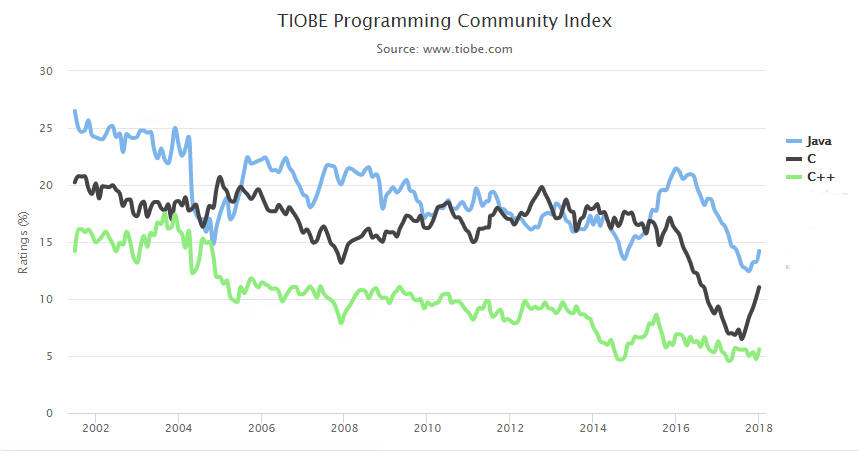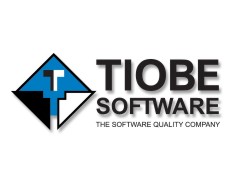| C - Language Of The Year 2017 |
| Written by Mike James | |||
| Saturday, 06 January 2018 | |||
|
The Tiobe index isn't too be taken too seriously, but it does reflect changes in the current interest in languages and the shock at the start of 2018 is that C has put on most growth making it the language of the year. You could argue that calling it the language of last year might be a more accurate way to phrase it, but C still has a place despite all of the best efforts to replace it by something better. It has a unique place in the list of popular language because it is the closest thing we have to being a machine-independent assembler. This makes it a good choice when you want to teach lower-level concepts and when you want to get to grips with the bare metal. Of course, there is a view that you don't need a language as dangerous as C to do the job and that its lack of runtime bounds checks and manual memory management are just too old-fashioned to be worth it. Now we come to a confession - the win wasn't by that much. C only put on 1.69% during the year and, as the Tiobe blog comments, this wouldn't usually be enough to become language of the year. This is more a reflection of the fact that the language scene in 2017 was fairly static with mostly decimal point changes in ratings. The exceptions in the top 20 were Java with a drop of -3% and Python with a gain of 1.2%. What is surprising, however, and this probably does justify C being language of the year, is that this modest gain comes after a fairly steep fall starting in 2015. It is, and has been for some time the number 2 language, but again this is mostly due to no one language gaining in popularity as it fell:
The fact that Java also seems to have had a smaller rise at about the same time does suggest that this might be an artifact rather than anything real. My best guess at reality is that C is still on a slide but it is still very popular - but perhaps for all the wrong reasons in some programmers opinion. My nomination for language of the year would be Kotlin because it has taken center stage due to its inclusion in Android Studio and hence one of the two main languages for Android development. Surprisingly the Tiobe index gives no hint that Kotlin is on its way up, listing it at 39 in the same region as Prolog and other minority languages. However, the Tiobe blog does point out that it has moved up 50 places from 89 so it is gaining. Don't take the Tiobe index too seriously it has too many flaws, but it does seem to indicate that we are moving from a world dominated by Java and perhaps C/C++ to something with more language flavours. Is this a good thing? For programmers who want a mixed diet and new challenges, yes, it is a welcome trend.
More InformationRelated ArticlesWhy Is C Top Language In IEEE Ranking? JavaScript Is The Language Of 2014 Objective-C Overtakes C++ in TIOBE Index To be informed about new articles on I Programmer, sign up for our weekly newsletter, subscribe to the RSS feed and follow us on Twitter, Facebook or Linkedin.
Comments
or email your comment to: comments@i-programmer.info |
|||
| Last Updated ( Saturday, 06 January 2018 ) |



